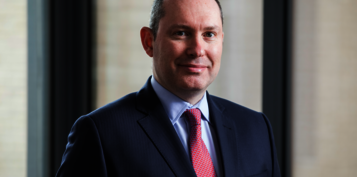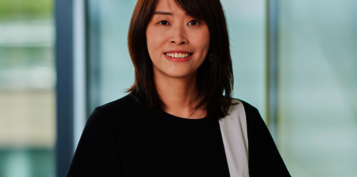Putting on the pounds
Ian Cowie celebrates some healthy returns this year

Europe’s worst war since 1945 and fresh atrocities in the Middle East cast a pall of uncertainty over global stock markets in 2023, but new technology and one of the oldest emerging markets on this planet rewarded shareholders who remained invested.
It was a year in which the worst fears of higher inflation and interest rates were not realised, while fortune continued to reward the brave and provide grounds for hope about the future.
Coming down from the clouds of geopolitics and macroeconomics, this long-term investor was delighted to receive double-digit returns during 2023 from an investment company in which I have been a shareholder for more than a decade. Polar Capital Technology (PCT) benefited from the global bounce-back from the previous year’s excessive fears about tech valuations in general and new excitement about artificial intelligence (AI) in particular.
ChatGPT, a form of generative predictive text, became the fastest-growing app ever after the software giant Microsoft (MSFT) invested $10 billion in the unlisted creator of this robotic assistant. MSFT is the largest holding in PCT, accounting for 10.9% of the investment company’s £3.4 billion assets.
PCT’s second and third-biggest holdings, the iPhone-maker, Apple (AAPL), and the graphics processing unit (GPU)-maker, Nvidia (NVDA), also helped this investment company deliver total returns of 30% over the last year, 109% over the last five years and 413% over the last decade according to independent statisticians Morningstar.
This small shareholder is happy to pay ongoing annual charges of 0.81% for PCT’s professional stock selection in a sector where I scarcely understand the terminology and am surprised to see the shares continue to trade 12% below their net asset value (NAV).
India Capital Growth (IGC) did even better during 2023, delivering 12-month total returns of 33% from a sub-continent where the East India Company had been a controversial forerunner of the British Empire in the 18th century. IGC’s focus on medium-sized and smaller companies also powered outstanding total returns of 98% over the last five years and 405% over the last decade.
By contrast, my longest continuously held share, JPMorgan Indian (JII), lagged behind with returns of 6%, 38% and 170% over the same three periods from a portfolio of bigger businesses. These include Hindustan Lever, whose value on the Bombay Stock Exchange now equals more than a third of the market capitalisation of its parent, Unilever (ULVR), on the London Stock Exchange.
JII remains my very first ten-bagger, or share whose price has soared more than tenfold, after I originally invested in what was called Fleming Indian in 1996. I expect both of these investment companies, IGC and JII, to benefit from continued growth in the world’s fifth-largest economy, which overtook Britain’s GDP in 2022.
"Looking back, 2023 was a year that demonstrated the value of diversification by investing internationally, across large and small companies, in new and old commercial sectors. Looking forward, 2024 is likely to see further surprises from pharmaceutical and technological innovation. Investment companies make it convenient and cost-effective for shareholders of all sizes to participate in wealth creation, wherever it occurs.”
Ian Cowie
Closer to home, Fidelity European Trust (FEV) helped me put on pounds from exposure to the weight-loss wonder drug-maker, Novo-Nordisk (NOVO), the Danish pharmaceutical business that is this investment company’s fifth-biggest holding. NOVO’s blockbuster treatments, Ozempic and Wegovy, hit the headlines when endorsed by the billionaire Elon Musk, among other celebrities, and plumped up NOVO’s stock market capitalisation to exceed Denmark’s GDP.
Alongside FEV’s top three holdings in Nestlé (NESN), the Switzerland-based most valuable food company in the world; ASML (ASML), the Dutch semiconductor chip-maker; and LVMH Moet Hennessy Louis Vuitton (MC), the French cognac and luxury goods giant, this £1.8 billion investment company delivered total returns of 13%, 90% and 196% over the aforementioned three periods.
Ongoing charges of 0.78% seem a reasonable price to pay for exposure to a diversified portfolio of assets on a continent where withholding taxes are extremely difficult, if not impossible, to reclaim. By contrast, FEV yields dividend income of 2.2% which has risen by an annual average of 12% over the last five years. If that rate of ascent is sustained – which is not guaranteed because dividends can be cut or cancelled without notice – investors’ income would double in six years.
Looking back, 2023 was a year that demonstrated the value of diversification by investing internationally, across large and small companies, in new and old commercial sectors. Looking forward, 2024 is likely to see further surprises from pharmaceutical and technological innovation. Investment companies make it convenient and cost-effective for shareholders of all sizes to participate in wealth creation, wherever it occurs.
Ian Cowie is a shareholder in Apple (AAPL), Fidelity European Trust (FEV), India Capital Growth (IGC), JPMorgan Indian (JII), Microsoft (MSFT), Novo-Nordisk (NOVO), and Polar Capital Technology (PCT) as part of a globally-diversified portfolio of investment companies and other shares.







